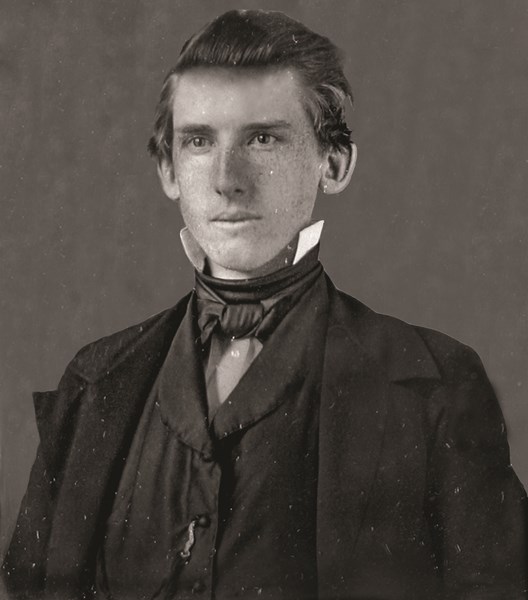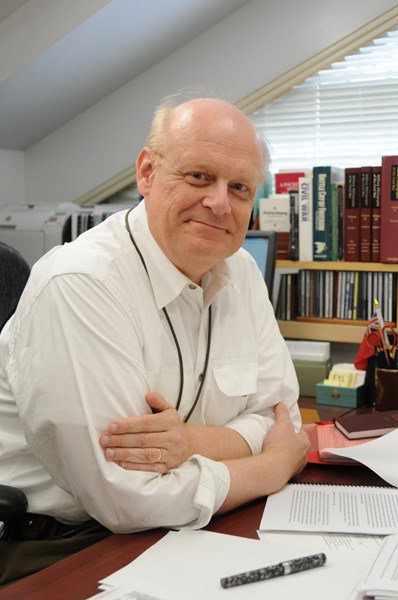GETTYSBURG, Pa., Nov. 11, 2013 (GLOBE NEWSWIRE) -- If a Gettysburg College alumnus hadn't invited President Abraham Lincoln to town in November 1863, Lincoln may have never delivered one of the most memorable speeches in American history.
David Wills, an 1851 graduate of Gettysburg College (then Pennsylvania College) and prominent local lawyer who worked to establish Soldiers' National Cemetery, invited Lincoln to deliver "a few appropriate remarks" at the cemetery's dedication.
The night before he delivered the Gettysburg Address, Lincoln stayed at the Wills family home on the square in town, where he is said to have finished the 272-word address.
According to Allen Guelzo, the Henry R. Luce Professor of the Civil War Era and director of Civil War Era Studies at Gettysburg College, getting Lincoln to travel from Washington was no small feat.
Guelzo notes that Wills wrote to him Nov. 2, and persuaded the president to make the trip, despite the fact that Lincoln was suffering from the beginning stages of what was likely smallpox. He took the train from Washington to Gettysburg, and complained of being dizzy during the ride. On the way back the next day, he was feverish and complained of a severe headache.
On November 19, 1863, townspeople, students, and faculty marched to hear Lincoln hallow the National Cemetery with his famous speech. Each fall, some 700 first-year students at Gettysburg College recreate the procession through town to hear an honored guest read the address and explore its enduring meaning.
The "First Year Walk" is a way of teaching new students a bit about the town, the Battle of Gettysburg, and the battle's aftermath.
About the Gettysburg Address and its critical importance to America today, Guelzo says:
"This is the most famous speech in American history. President Bush went back to it during 9/11. In this short speech, Lincoln answered the basic question of whether democracy works. He pointed to the graves of the brave soldiers to prove that ordinary people are willing to make the ultimate sacrifice. Today, we suffer economically, but our leaders are telling us if we vote for them they will provide us with special goodies. They are not challenging us as Lincoln did and John F. Kennedy did. Today it's about "where's mine?" The Address is the pivot on which the history of our democracy turns. If we couldn't protect this union in 1863, the United States as a nation would have been lost. We prevailed again during the World War I and World War II and during the Cold War.
"Today we have to ask ourselves, what is going to rescue this nation from our economic woes and make us more secure globally? What will make our and make American today truer to the Constitution? Will it be factional politics? Obviously not. We need a new birth of freedom and it would be nice if someone would call us to it. Lincoln showed us the way—we must govern with liberty and power working together. Power must serve liberty. Our Founding Fathers knew that. Are we still singing that song?"
Today, Gettysburg College is a highly selective, national, four-year residential college of liberal arts and sciences with approximately 2,600 students and more than 65 academic programs. The College remains nationally known for Civil War programs.
Photos accompanying this release are available at:
http://www.globenewswire.com/newsroom/prs/?pkgid=22140
http://www.globenewswire.com/newsroom/prs/?pkgid=22141

